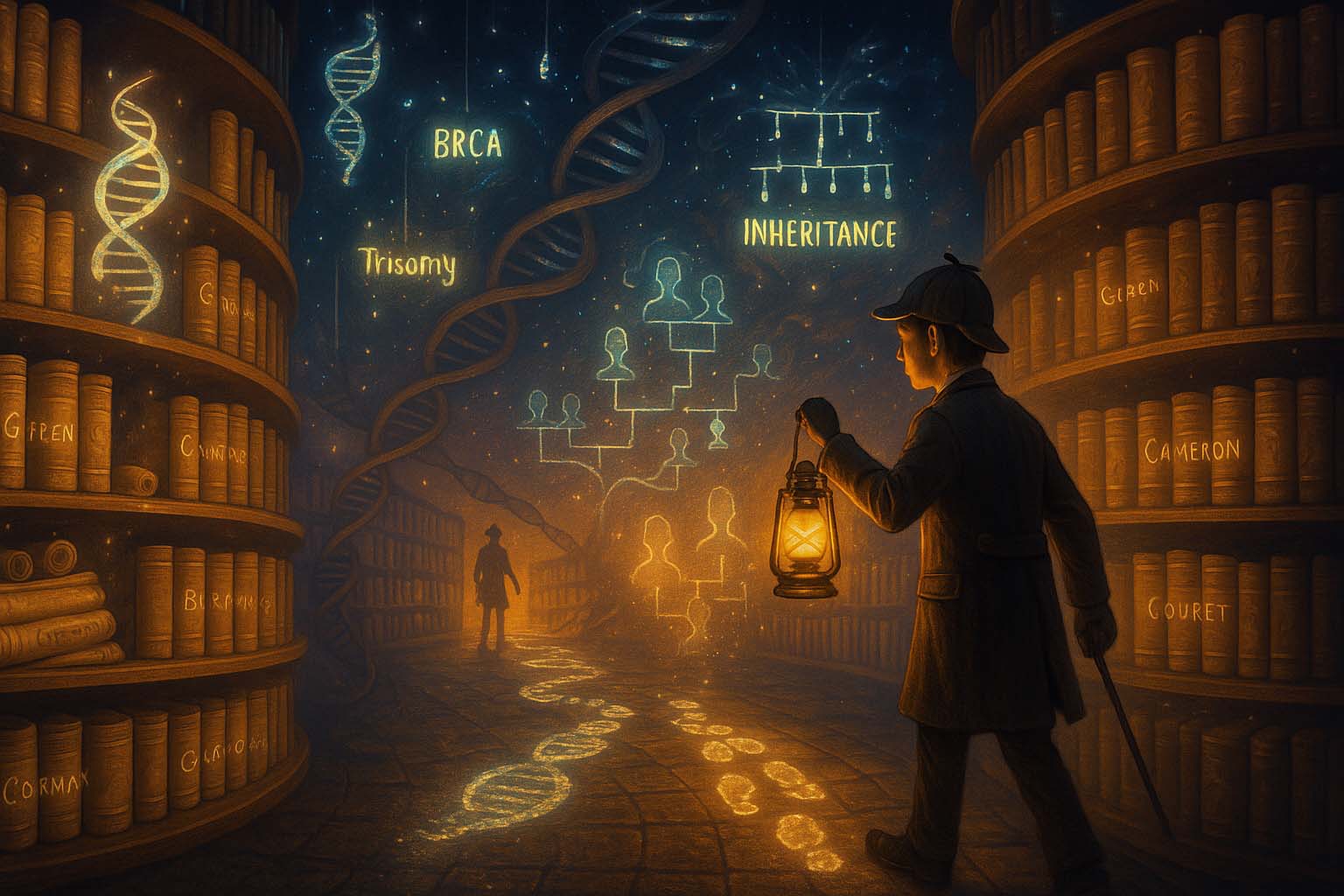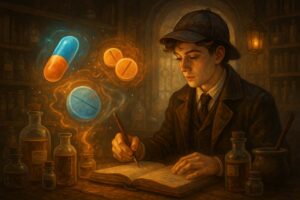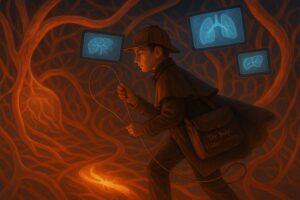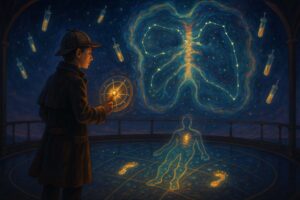
Clinical Genetics
- Posted by admin
- Categories Diagnostics & Interventional Medicine
- Date May 24, 2025
- Comments 0 comment
The Hereditary Detective’s Domain – Cracking the Cases of Syndromes, Sequences, and the Code Behind the Condition
1. Introduction: The Scene of the Specialty
Step into the shoes of a Clinical Genetics sleuth.
This is the field of biological storytelling—where family histories whisper patterns, and phenotypes point to deeper truths. Clinical geneticists investigate rare diseases, unexplained anomalies, and inherited conditions through the lens of DNA. Their role blends science and sensitivity—because every genetic discovery impacts not just a patient, but a family. Welcome to a world where a face may hint at a chromosome, and where one blood test can echo across generations.
2. Key Mysteries They Solve (Common Conditions & Presentations)
These detectives specialise in solving cases involving:
- Single-Gene Disorders – such as cystic fibrosis, Huntington’s disease, or Marfan syndrome.
- Chromosomal Abnormalities – including Down syndrome, Turner syndrome, or microdeletions.
- Developmental Delays and Dysmorphisms – unexplained intellectual disability or birth defects.
- Hereditary Cancer Syndromes – such as BRCA mutations, Lynch syndrome, or FAP.
Each case involves clinical assessment, genomic analysis, and careful family navigation.
3. Their Trusted Tools & Techniques
Every detective has their kit—and in Clinical Genetics, tools may include:
- Pedigree Construction and Family History Analysis – uncovering inheritance patterns across generations.
- Chromosomal Microarray and Karyotyping – detecting large-scale deletions, duplications, and rearrangements.
- Whole Exome and Genome Sequencing – identifying mutations at the molecular level.
- Genetic Counselling and Risk Communication – translating data into decisions with empathy and care.
This is medicine rooted in patterns—where every clue matters, and no story stands alone.
4. The Charms of This Field: Why It Captivates the Curious
- Pattern Recognition Mastery: From facial features to molecular motifs, the diagnosis lies in the details.
- High Impact on Family: Your discoveries help parents, siblings, children, and future generations.
- Rapidly Advancing Science: Genetics is evolving faster than almost any other field—there’s always more to learn.
- Meaningful Dialogue: The work is deeply relational—you sit with people at the junction of science and identity.
This is a specialty where the questions are ancient—but the answers are new.
5. Challenges: The Toughest Cases They Face
- Uncertainty in Results – Not every variant has a clear significance.
- Emotional Complexity – Families may face grief, guilt, fear, or difficult decisions about reproduction or risk.
- Ethical Dilemmas – Should you test a child for an adult-onset disease? How do you handle incidental findings?
- Access and Equity – Advanced testing is not equally available to all.
But the seasoned genetics clinician knows: the diagnosis is only part of the care—you must also walk the journey.
6. Famous Cases and Hallmark Clues
- The “Classic Presentation” – Tall, hypermobile young adult with lens dislocation: suspect Marfan syndrome.
- The “Zebra” – Multiple early colon polyps in a teen: consider familial adenomatous polyposis (FAP).
- The “Aha Moment” – A baby with hypotonia, feeding issues, and almond-shaped eyes: Prader–Willi syndrome confirmed on methylation testing.
7. Your Training Trail: How to Join the Investigation
To become a Clinical Genetics detective:
- Start with training in paediatrics, internal medicine, or obstetrics, then specialise in clinical genetics.
- Learn embryology, molecular biology, dysmorphology, and advanced diagnostic techniques.
- Develop counselling skills—your words can carry enormous weight.
- Keep learning—new syndromes, therapies, and gene discoveries emerge every year.
Whether explaining a BRCA mutation or guiding a rare diagnosis into clarity, you are helping families see the future more clearly.
8. Final Words: The Signature of the Clinical Genetics Detective
Clinical genetics detectives are custodians of connection.
They link the visible and invisible, the present and the future, the individual and the inherited.
They help families understand who they are—not just in body, but in biology and possibility.
So if you’re drawn to deep diagnostics, evolving science, and conversations that matter—then this is your specialty of sequence, story, and soul.
You may also like

Clinical Pharmacology

Interventional Radiology

